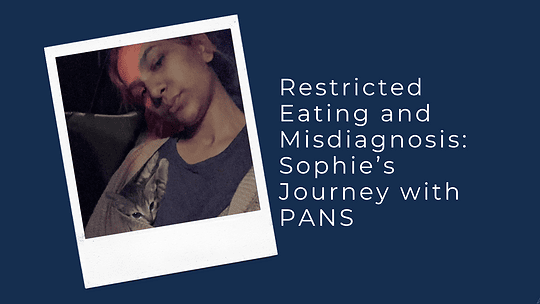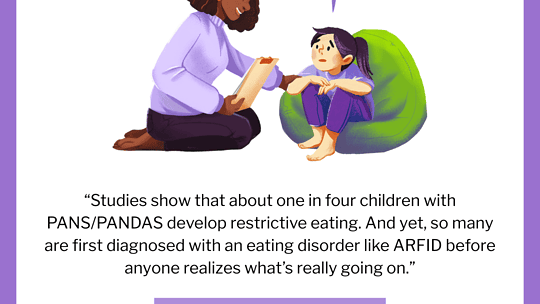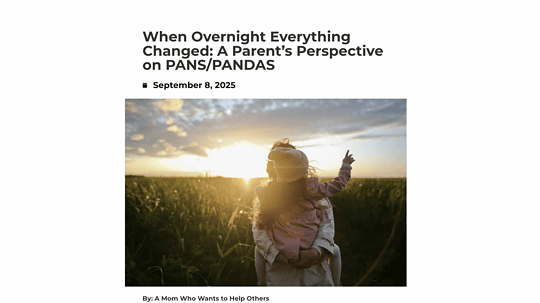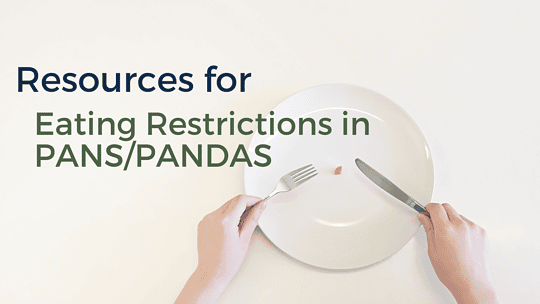
Restricted Eating and Misdiagnosis: Sophie’s Journey with PANS
When severe food restriction and complex symptoms are mistaken for FND, proper evaluation is crucial. When Sophie got the flu at age 12, she didn’t expect it would mark the...

When severe food restriction and complex symptoms are mistaken for FND, proper evaluation is crucial. When Sophie got the flu at age 12, she didn’t expect it would mark the...

Read more about one family’s story and what PANS/PANDAS really looks like, written by ANAD Community Member and ASPIRE’s Midwest Lead and Restricted Eating Lead, Breanne Failor One day, your...

Sometimes what looks like an eating disorder is really a symptom of PANS/PANDAS. Too many families miss the real cause and go without the help their kids need. That’s why we’re so glad @F.E.A.S.T...

Restricted eating, including Avoidant/Restrictive Food Intake Disorder (ARFID), is a common yet complex challenge for individuals with PANS/PANDAS. Families and patients often struggle to find...

by James Greenblatt, Ali Nakip MD, Jennifer C Dimino As mainstream medicine continues to ignore the proven relationship between nutrition and mental health, this book delivers lifesaving information....

by Rachel Bryant-Waugh ARFID Avoidant Restrictive Food Intake Disorder: A Guide for Parents and Carers is an accessible summary of a relatively recent diagnostic term. People with ARFID may show...

Note from ASPIRE: This is a must-read PANS PANDAS Patient Story. A typical happy young girl develops a severe eating disorder and other PANS PANDAS symptoms; then, she suffers through...
Conclusions: The interactions between EDs and autoimmune diseases support the previously reported associations. The bidirectional risk pattern observed in women suggests either a shared mechanism or a third mediating variable contributing to the association of these illnesses.
In a Danish population-based cohort study of 525 643 adolescent girls, a prior infection in childhood was associated with an increased risk of later anorexia nervosa, bulimia nervosa, and eating disorder not otherwise specified.
The findings suggest that hospital-treated infections and less severe infections treated with anti-infective agents are associated with increased risk of subsequent anorexia nervosa, bulimia nervosa, and eating disorders not otherwise specified and that future studies should investigate whether these associations are causal and identify the exact mechanisms between infections and subsequent inflammatory processes with eating disorders.